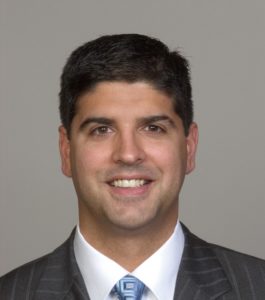
On Oct. 16, a federal court issued an opinion that greatly limits federal immunity protections for nursing homes. The case of Sherod v. Comprehensive Healthcare Management Services, LLC, should be on all providers’ radar.
In the case in question, a nursing home, Brighton Rehabilitation and Wellness Center, could not claim preemption and federal immunity under the federal “Public Readiness and Emergency Preparedness Act,” also known as the PREP Act, against a housekeeper’s COVID-19 wrongful death suit against the facility.
The PREP Act provides immunity from liability under state and federal law to a “covered person” for losses related to the use of “countermeasures” during a declared public health emergency. PREP Act immunity is not new, as the act has been used in the past for immunity protection in response to Zika, ebola, pandemic influenza, botulinum toxin, smallpox, acute radiation syndrome and anthrax.
Brighton Rehabilitation and Wellness Center claimed that a nursing home is considered a covered person under the PREP Act. But the federal court held that the estate’s allegations did not fall within the purview of the PREP Act’s immunity because the plaintiff’s alleged claims were premised on the nursing home’s failure to provide countermeasures rather than countermeasures that were used by the nursing home that may have failed.
PREP Act and COVID-19 history
On March 10, 2020, the Secretary of Health and Human Services issued a Notice of Declaration under the PREP Act to provide immunity from tort liability claims (except willful misconduct) to individuals or organizations involved in the manufacture, distribution or use of medical countermeasures against COVID-19. PREP Act immunity applies from Feb. 4, 2020, through October 1, 2024.
The PREP Act has been used as a strategic theory of defense against plaintiff suits across the country against COVID-19 negligence claims of healthcare providers and other employers. PREP Act immunity applies only if one or more certain complex conditions under the law are met.
To be covered by PREP Act immunity, the COVID-19 countermeasure that a nursing home utilizes must be “qualified pandemic or epidemic products” or “security countermeasures” or drugs, biological products or devices that are approved by the FDA, or that are adopted in guidance from federal state or local public health authorities.
The problem is, determining what guidance is under COVID has been a moving target, with each federal, state and local agency having seemingly different, even conflicting, guidance on how to deal with this illusive pandemic.
Plaintiff loopholes?
The Sherod case unfortunately shed light on a Prep Act loophole, which is what plaintiffs have utilized to avoid PREP Act immunity. The PREP Act loophole is utilized when plaintiffs allege that an employer failed to use appropriate countermeasures, without focusing on the employer’s actual use of the countermeasures, to get around application of PREP Act immunity.
Notably, the Sherod case applied this loophole and the federal District Court judge in the Western District of Pennsylvania ruled in favor of the plaintiff, finding that the PREP Act did not apply and, therefore, did not provide immunity to an employer (a nursing home) where that employer failed to use covered countermeasures. The Sherod case shows how PREP Act immunity will protect nursing homes from, for example, faulty test kits, but may not remove liability if employers fail to use proper COVID-19 countermeasures.
HHS disagreement
In more news on the PREP Act immunity, the U.S. Department of Health and Human Services released an advisory opinion in October detailing its view of PREP Act immunity and how nursing homes and other businesses can avail themselves of it.
Surprisingly, and to make this more complicated, HHS disagreed with “failures” to act as being outside the protection of the PREP Act immunity, calling similar court decisions to the Sherod case as wrong! HHS points out that it is possible that a program to act (or not act) in fighting COVID-19 could still be covered by PREP Act immunity despite the Sherod case opinion.
Ultimately, HHS concludes that PREP Act immunity is complicated, and Sherod and other cases will continue to interpret nursing home immunity for years to come.
Neville M. Bilimoria is a partner in the Chicago office of the Health Law Practice Group and member of the Post-Acute Care And Senior Services Subgroup at Duane Morris LLP; [email protected].





